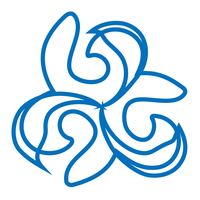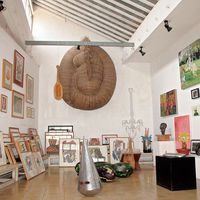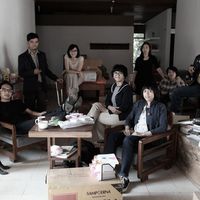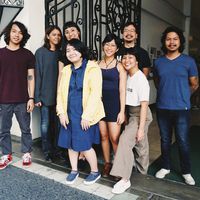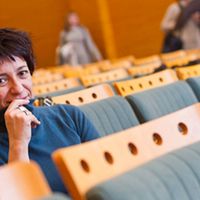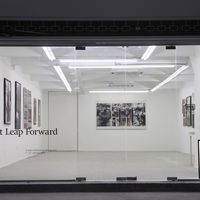In conversation with Gunawan Maryanto I Managing Director, Teater Garasi, Yogyakarta, Indonesia
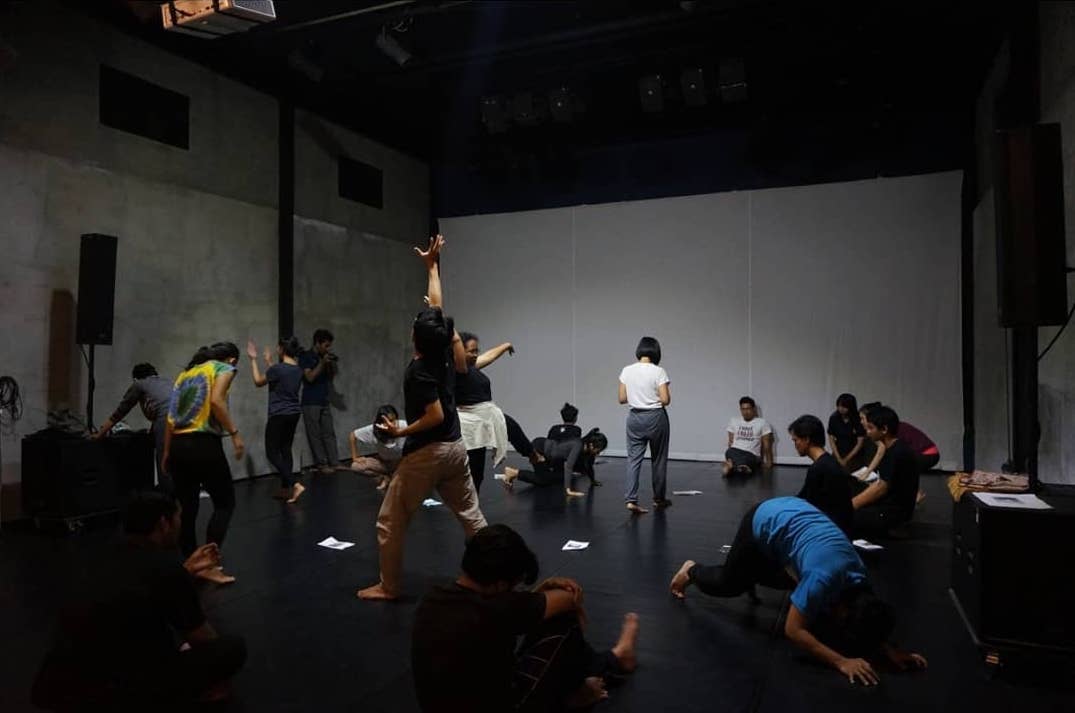
This month, culture360 contributor David Fernandez travels to Yogyakarta, Indonesia. In this article, he interviews Gunawan Maryanto, Director of Teater Garasi, a multi-disciplinary performance collective that explores possibilities in performing arts as an attempt to read, unveil and understand changes happening in our transforming world.
David Fernandez (DF): How would you describe Teater Garasi? What was set out to achieve when Teater Garasi was founded?
Gunawan Maryanto (GM): Teater Garasi is a collective of interdisciplinary artists who explore and create various performance possibilities as efforts towards representing and/or presenting socio-cultural issues, challenges, and tactics.
Established in 1993, Teater Garasi was initially intended as a space of expression for undergraduate student social movement amidst the oppressive political climate of the Indonesian New Order regime. Along with its growth, especially since 1999, Garasi has increasingly explored the practice of performance making as a mode of knowledge production while being dialectically engaged with its socio-political surrounding. This vision and practice has brought the artists and works of Theatre Garasi into the larger network of both local and international performing arts forums.
DF: How do you see the evolution of Teater Garasi as an art platform?
GM: Teater Garasi’s evolution is shaped by both internal and external dynamics (its engagement with the wider environment of Yogyakarta and Indonesia as well as international networks). From its student theatre phase, serving as an open study group in a larger map of student movement (1998), to its Laboratory for Theatre Creation phase (2002-2007), Garasi currently works as an Artist Collective (2008-present) that serves as an open platform for a larger network of performance exchanges.
In the past few years, we have seen the need to reconsider institutional barriers and work through building an open hub for art practitioners and cultural activism.
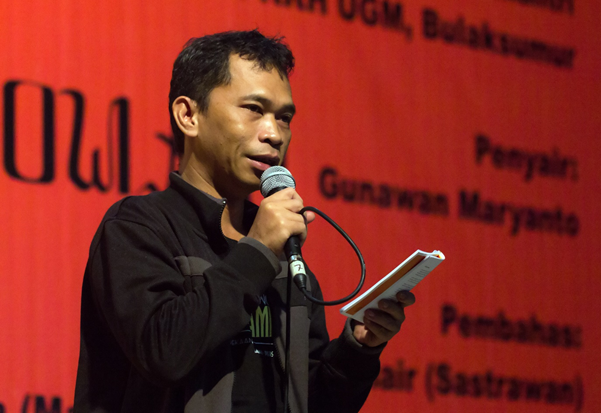
Gunawan Maryanto, Director, Actor and Writer of Teater Garasi
DF: What are your plans for the future of Teater Garasi, do you have any specific goals you would like to attain in the future?
GM: Teater Garasi wishes to strengthen the practice of Garasi Performance Institute, and to sharpen its knowledge production programs such as our Open Laboratorium, Performer’s Studio and Artists Residencies. We categorize our work into three interconnecting main programs.
The first program is the Open Laboratory where we explore possibilities of performance as forms of knowledge production. It is an umbrella for various sub-program such as Performers Studio, where our performers disseminate and exchange their knowledge with other performers and/or the general public. It is also space where our performers (and invited/guest performers) conduct an individual performance research project. Dramaturgy Assembly and Cabaret Chairil are two other subprograms under open laboratories. The Assembly is an open meeting platform for performance makers across Indonesia – and hopefully, in the near future, beyond Indonesia – to exchange, develop, and evaluate their respective dramaturgical projects. Curated by a year-long guest curator, Cabaret Chairil is a work-in-progress forum for general public, initially to share the works of the Assembly’s participant. In its development, Cabaret Chairil works the other way around, as it becomes an open platform for various kinds of work-in-progress performances which would be studied in the Assembly. Other subdivisions in the program acknowledges specificities of disciplinary practices such as literature (BlockNot Forum), cinema (Kine Klub), and two subprograms for music, Live at Teater Garasi (live concert for emerging cutting- edge music group) and What’s Your Story of Today (work-in-progress forum for experimental musician). The Open Laboratory program also host our Residency Program as well as maintaining our multimedia library.
The second is the Performance Development program, which is tightly connected to findings of the Open Laboratory. This program is a space where Teater Garasi conceived and develop performance research in the advanced stage. This program would also facilitate production and touring.
The third program, the Artists Residencies is a space for a medium-term, thematic research program. From 2017-2019, with the support of Ford Foundation, we are researching different places outside of Java, such as East Flores, Madura, Sumbawa, and Singkawang. Focusing on the issue of tolerance, we are working and learning from local artists from the respective places, to eventually create workshop series, performances, exhibitions, and publications.
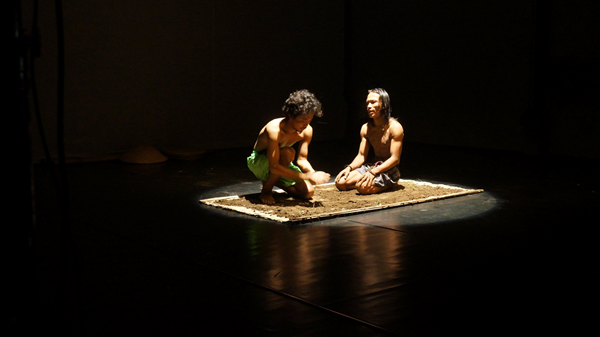
DF: What has been the most important focus of your platform?
GM: The three notions previously mentioned is the core of our platform. Performance making is always a meeting space and this has perhaps influenced the way we think about performance-making group as a group that sustains its act of “meeting others”. In the last few years, we are reconfiguring how we could define the term, along with the idea of meeting and otherness in our historical time. Much like any other theatre group in Indonesia, we used to be a group that is predominantly driven by an enclosed membership. But the character of the group has changed since we restructured ourselves with an artist collective standpoint, due to the various individual trajectories of Garasi’s artists.
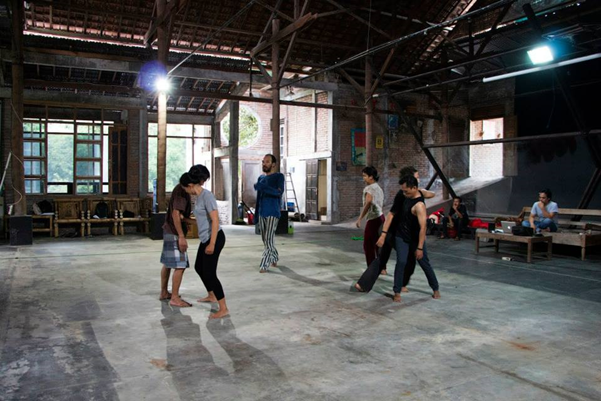
From a collective point view, the way that we think of “membership”, in a self-serving sense of the word, should begin to change. From here we return to the notion of a collecting as a site of “meeting others”. What is “meeting” in a highly mediatized society, who are “others” in the endless cycle of exclusion and marginalization. Exchanging knowledge follows the term, in a sense that the drive of performance making, at least in our experience, is leaning towards knowledge gleaning, making, embodying, and circulating. But our individual knowledge exploration is limited, that’s for sure. However, the limited findings would be more than sufficient only if we allow it to be free to move, grow, and build a larger, more open, community. Hence, the Open Laboratory. Beside the openness, labor is the key word here. And to practice meeting platform, knowledge exchange, and open labor space, is hopefully to help shape a larger network of idea, where critical cultural producers can connect and create an even larger wave.
DF: How is the public in Yogyakarta reacting to your programmes?
GM: Yogyakarta is always a nurturing site for cultural expression, consistently evolving as an intracultural space, considering that its audiences are students who come from various places across Indonesia. Their engagement to Teater Garasi’s programs have varied depending on the characteristics of the program. Performance presentation program receives the largest audience interest. Meanwhile, other programs such as workshops and discussions receive a more specific responses from the likes of fellow artists, cultural producers, and/or art students and enthusiasts, following a more heightened and concentrated characteristics of the events.
DF: Why is Teater Garasi important in the Yogyakarta scene?
GM: Since its beginnings, Teater Garasi has consistently been known as a theatre space or collective of artists that seeks to present grounded work, raises relevant issues, and creates programs that remain open to art enthusiasts, particularly young artists.
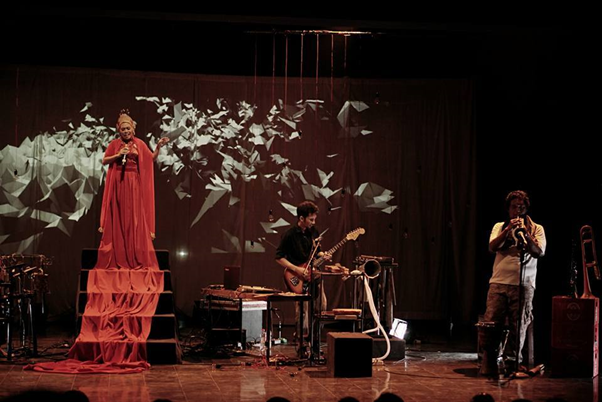
DF: What is Yogyakarta's art & cultural scene like nowadays? How would you describe the local creative community?
GM: Yogyakarta is well-known for being a culturally expressive city, where large numbers of artists from varying disciplines meet and create works. Art organizations / institutions in Yogyakarta are numerous, active and hold strong networks. Each of them work on particular issues, issues that are quite specific.
To find out more about Teater Garasi, please visit: http://teatergarasi.org/
David Fernández is a Spanish-born contributing writer working in South East Asia for nearly a decade. Currently working as freelance arts & cultural project manager and digital media consultant around the region, he is also the co-founder of Cho Why multi-disciplinary project space in Bangkok, Thailand. He previously co-founded Le Cool Bangkok arts & culture webzine and worked as content director.
Similar content
posted on
05 Jul 2011
19 Jul 2016

